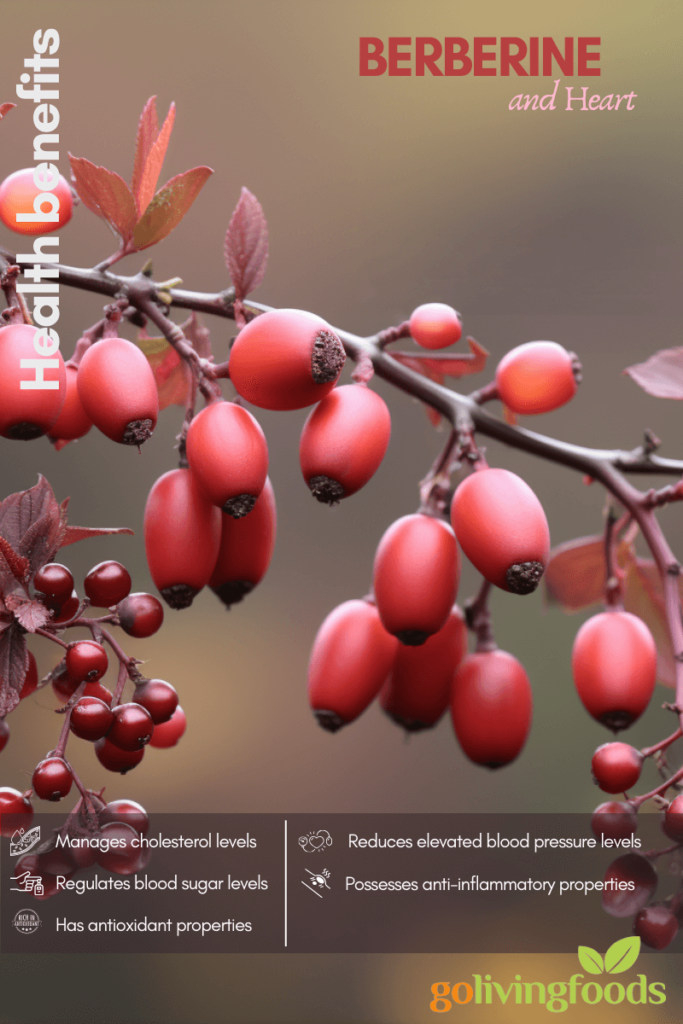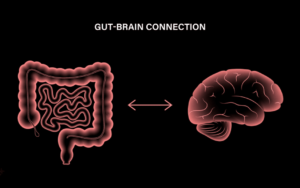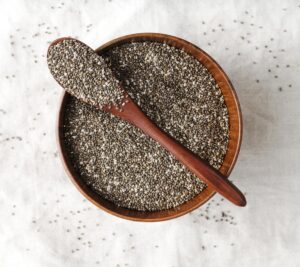Can Berberine Unlock the Secrets to a Healthy Heart?

Heart health is a critical aspect of overall well-being, and maintaining a healthy heart is essential for a long and fulfilling life. With the rising prevalence of cardiovascular diseases, there is a growing interest in exploring natural compounds that could support heart health and potentially unlock the secrets to a healthier heart. One such compound that has gained attention in recent years is berberine.
Berberine is a bioactive alkaloid found in various plants, including barberry and goldenseal. It has a long history of use in traditional medicine, particularly in Ayurveda and Chinese herbal medicine, where it was utilized for its potential health benefits. In modern times, scientific research has intensified to explore the various properties and potential benefits of berberine for heart health.
In this article, we will delve into the scientific evidence surrounding berberine and its impact on heart health. We will explore studies and findings related to cholesterol management, blood pressure regulation, blood sugar control, and its potential anti-inflammatory and antioxidant properties. Additionally, we will touch upon other areas of interest regarding berberine’s effects on heart health and address safety considerations.
Before delving into the specific aspects of berberine’s impact on heart health, it is essential to understand the importance of heart health and the common concerns that affect cardiovascular well-being. With this understanding in mind, we can better appreciate the potential significance of berberine as a natural approach to supporting heart health. Let’s explore the science behind berberine and how it might unlock the secrets to a healthy heart.
Understanding Heart Health and Common Concerns
1. The Importance of Heart Health
The heart, a remarkable organ, serves as the lifeline of the body by playing a pivotal role in the circulatory system. Its primary function involves pumping oxygen-rich blood throughout the entire body, ensuring every tissue and organ receives the vital nutrients and oxygen they require to function optimally.
The heart’s rhythmic contractions and expansions create a continuous flow of blood, circulating life-sustaining substances that keep us alive and thriving. With each beat, the heart propels oxygen and nutrients through the arteries to nourish cells, while simultaneously carrying away waste products through the veins.
Maintaining a healthy heart is not merely an option; it is a fundamental necessity for overall well-being and longevity..
1.1. The Global Burden of Cardiovascular Diseases (CVD)
The significance of heart health becomes evident when considering the alarming global prevalence of cardiovascular diseases. Heart conditions, such as coronary artery disease, heart failure, and hypertension, have emerged as leading causes of morbidity and mortality worldwide.

1.2. Common Cardiovascular Concerns
Cardiovascular diseases (CVDs) encompass a wide range of conditions that affect the heart and blood vessels. Among the most prevalent cardiovascular concerns are:
Exploring Berberine’s Impact on Heart Health
1. Fundamental Traits
Berberine, classified as a plant metabolite and part of the Isoquinoline Alkaloids group, is commonly found in the roots, bark, and other plant structures used in traditional Chinese and East Asian medicines. It is notably abundant in the Amur Cork Tree and Chinese Goldthread.
The remarkable feature of berberine lies in its multiple-target effects, suggesting it may offer therapeutic benefits for various chronic diseases, including obesity, diabetes mellitus, Inflammatory Bowel Disease (IBD), Alzheimer’s disease, rheumatoid Arthritis, and cardiovascular diseases (CVD).
Currently, Western medicine remains the primary approach for treating CVD, employing hypoglycemic agents, statins, anticoagulants, beta receptor blockers, nitrates, and anti-thrombotic drugs in CVD patients. While these drugs have proven efficacy, they also carry potential serious adverse effects, posing significant challenges.
This calls for urgent exploration of alternative and complementary therapies to enhance CVD management. Natural compounds like berberine offer a promising avenue to support heart health. Now, let’s delve into the scientific evidence surrounding the potential impact of berberine on heart health.
2. Cholesterol Management
Maintaining optimal cholesterol levels is crucial for heart health, as imbalances in cholesterol levels can contribute to the development of cardiovascular diseases. Berberine has gained attention for its potential role in managing cholesterol levels.
3. Blood Pressure Regulation
Several studies have highlighted the potential of Berberine in effectively reducing elevated blood pressure levels, making it a promising natural approach for managing hypertension.
Berberine’s vasodilatory properties, which help to widen blood vessels, may be one of the key mechanisms contributing to its blood pressure-lowering effects. By relaxing blood vessel walls, berberine promotes improved blood flow and reduced resistance, which can lead to a decrease in elevated blood pressure.
Moreover, berberine’s interaction with various signaling pathways involved in vascular function and fluid balance has been extensively investigated:
Maintaining healthy blood pressure levels is of paramount importance for heart health. High blood pressure, or hypertension, is a significant risk factor for various cardiovascular diseases, including heart attack, stroke, and heart failure. By effectively managing blood pressure, individuals can significantly reduce their risk of these life-threatening conditions and promote better cardiovascular well-being.
Incorporating berberine as a dietary supplement may offer a natural and effective means to support blood pressure management.
4. Blood Sugar Control
Berberine has garnered considerable attention for its potential role in blood sugar control, particularly in individuals with type 2 diabetes.
The research indicates that berberine may effectively reduce fasting blood glucose levels and post-meal glucose spikes. By enhancing insulin sensitivity, berberine can assist the body’s cells in better utilizing glucose, thus promoting more stable blood sugar levels.
For individuals with type 2 diabetes, berberine supplementation has shown to be a valuable adjunct to standard diabetes management approaches. It may be particularly beneficial for those struggling to maintain healthy blood sugar levels despite lifestyle modifications or medications. Some studies have even suggested that berberine’s effects on glucose metabolism could rival the efficacy of certain antidiabetic drugs, offering a natural and potentially more accessible solution for diabetes control.
Elevated blood glucose can lead to various complications that may negatively impact the heart and blood vessels. By effectively managing blood sugar, berberine may help reduce the risk of cardiovascular diseases such as atherosclerosis, heart attack, and stroke.
5. Anti-Inflammatory and Antioxidant Properties
Chronic inflammation and Oxidative Stress are key contributors to the development and progression of cardiovascular diseases, making berberine’s capabilities as an anti-inflammatory and antioxidant agent highly promising for heart health.
Inflammation is the body’s natural response to injury or infection, but when it becomes chronic and sustained, it can wreak havoc on the cardiovascular system. Prolonged inflammation can lead to the formation of atherosclerotic plaques, which are fatty deposits that accumulate in the arteries, narrowing them and increasing the risk of heart attacks and strokes. Additionally, chronic inflammation can contribute to the dysfunction of blood vessels and impair their ability to dilate, negatively impacting blood flow and overall heart function.
Berberine’s anti-inflammatory properties work to combat this chronic inflammation. It can inhibit the activity of pro-inflammatory molecules and signaling pathways, reducing the overall inflammatory response. Studies have shown that berberine can lower the levels of inflammatory markers, indicating its potential to mitigate inflammation and its detrimental effects on the cardiovascular system.
Moreover, oxidative stress is a condition that arises when there is an imbalance between the production of harmful reactive oxygen species (ROS) and the body’s ability to neutralize them with antioxidants. ROS can damage cells, including those in the blood vessels and heart, and promote the development of atherosclerosis. As an antioxidant, berberine can counteract this oxidative damage by neutralizing ROS and protecting cells from harm.
Berberine also supports the body’s own antioxidant defense systems, promoting the production of endogenous antioxidants like glutathione and superoxide dismutase (SOD). These antioxidants play a critical role in scavenging free radicals and preventing oxidative damage.

6. Safety Profile of Berberine
Ensuring the safety of any dietary supplement is of paramount importance, and berberine is no exception. As a promising natural compound with potential health benefits, it is essential to understand its safety profile when used as a dietary supplement.
Numerous studies have explored the safety of berberine in various applications, including its use as a supplement to support heart health. Generally, berberine is considered safe for short-term use when taken at appropriate dosages. However, it is crucial to adhere to recommended dosages and avoid exceeding the prescribed limits.
Potential side effects associated with berberine supplementation may occur, especially when taken in excessive amounts. Some individuals have reported gastrointestinal discomfort, such as diarrhea, constipation, or stomach cramps. These side effects are typically mild and transient, resolving on their own after discontinuing or adjusting the dosage.
To ensure safety, it is essential to follow the dosing recommendations provided by healthcare professionals or the product label. Starting with a lower dosage and gradually increasing it, if necessary, may also help minimize the risk of side effects.
Certain groups of individuals should exercise caution or avoid berberine supplementation altogether. Pregnant and breastfeeding women should avoid berberine due to limited research on its safety during pregnancy and lactation. Similarly, individuals with liver or kidney disorders should consult their healthcare provider before taking berberine, as it may interact with certain medications or worsen pre-existing conditions.
Furthermore, berberine may interact with specific medications, potentially affecting their effectiveness or causing adverse effects. Therefore, individuals taking prescription medications, especially for cardiovascular conditions, should consult with a healthcare professional before starting berberine supplementation.
It is essential to purchase berberine supplements from reputable sources to ensure product quality and purity. Always read the product labels and look for third-party certifications that verify the supplement’s potency and absence of contaminants.
Takeaway
In conclusion, berberine emerges as a promising natural compound with the potential to unlock the secrets to a healthy heart. Its impact on cholesterol management, blood pressure regulation, blood sugar control, and its anti-inflammatory and antioxidant properties make it an exciting area of research for cardiovascular health. However, it’s crucial to remember that dietary supplements should complement a healthy lifestyle and not replace essential medical interventions or treatments.






